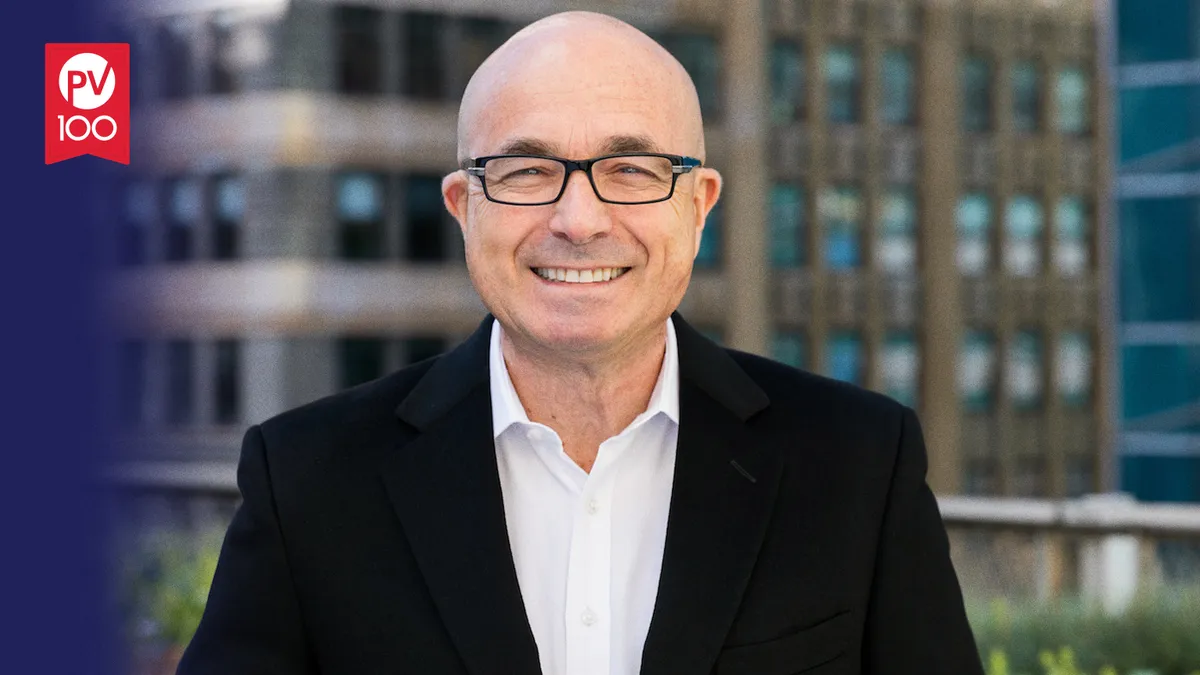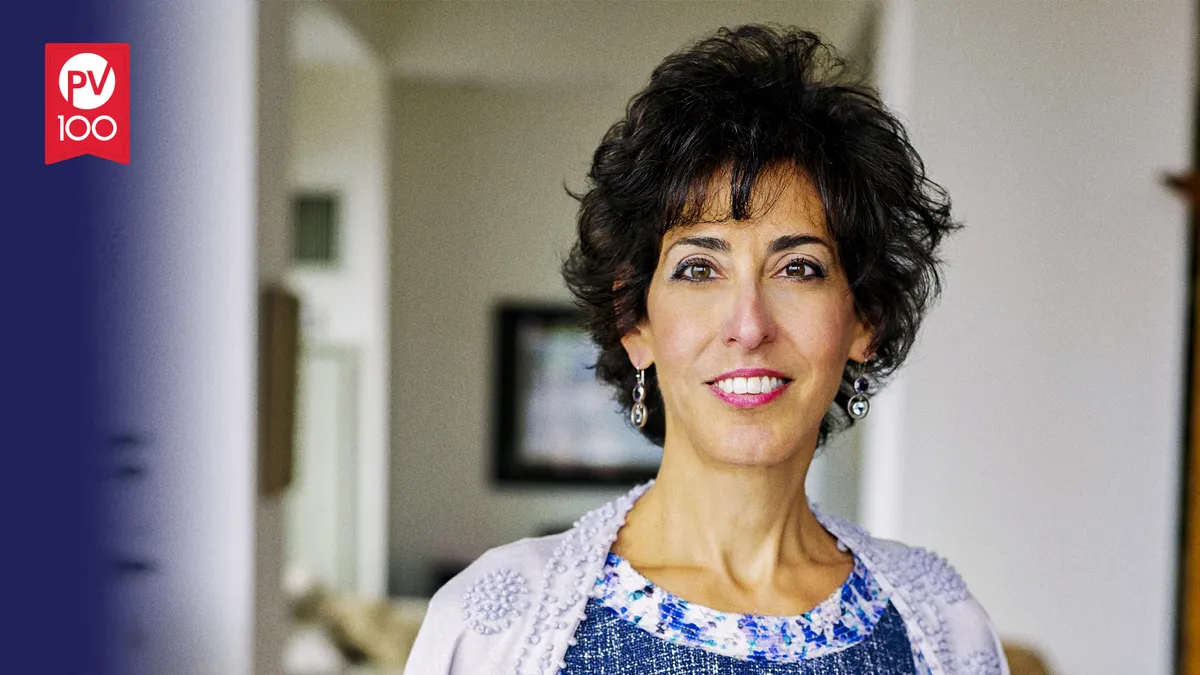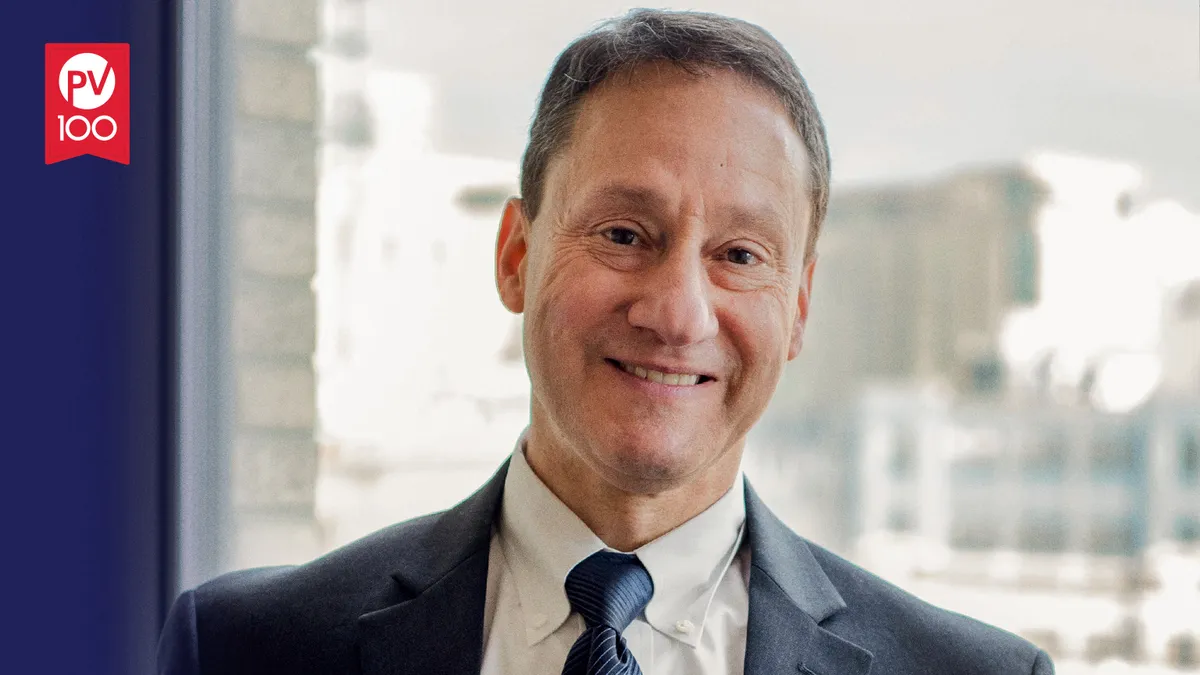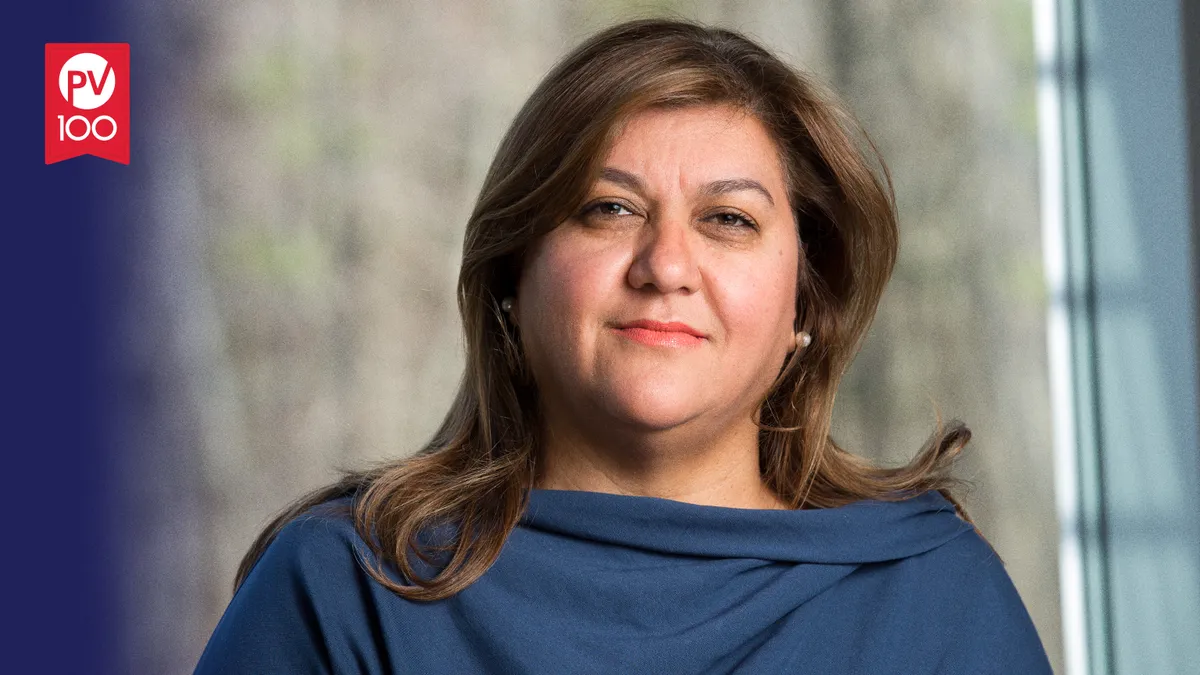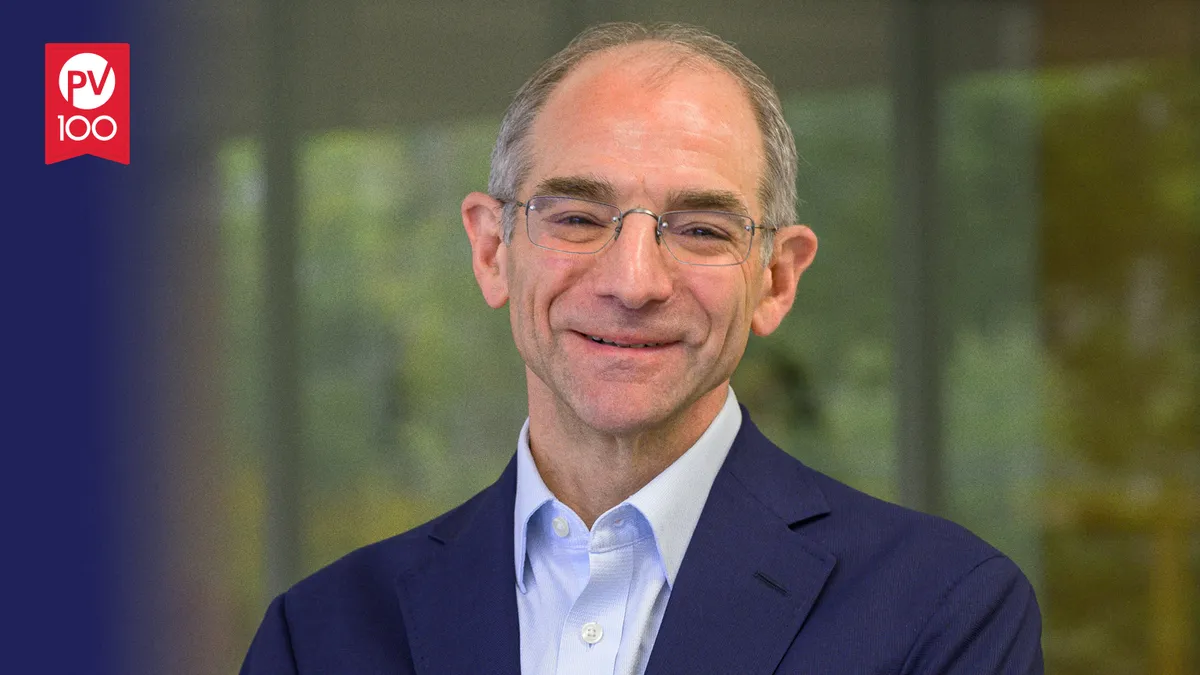Editor’s note: This story is part of our 2023 Red Jacket awards feature.
When Dr. Jeremy Levin examines his career and the profound influence he’s had on the biopharma industry, his thoughts don’t settle on just the professional accolades.
Sure, Levin is CEO and chairman of the neuroscience biotech Ovid Therapeutics. He led Teva Pharmaceutical, the world’s largest generic drug company, as CEO during a time of upheaval. He transformed Bristol Myers Squibb as head of business development, where he was the architect of the “string of pearls” M&A concept that brought the company back from the brink.
No, Levin would rather focus on what he has accomplished as a “participant” rather than a leader. He sees himself as part of the biopharma machinery and what it can be in the future if leaders and scientists “dare to think differently” in their approach to innovation.
"Living off the industry is not sufficient — I would like to leave people with the view that they can build the industry."

Dr. Jeremy Levin
CEO and chairman, Ovid Therapeutics
“No one individual can change the industry,” Levin said. “But what you can do is set the tone, and I think the most exciting things I can point to are realizing and then acting on the fact that my colleagues around me needed to see that you could make an example.”
Today, Ovid is devoted to “opening up the biology of neuroscience” by advancing new compounds to treat known targets in the brain. The company’s lead candidate soticlestat is in two late-stage studies for rare forms of epilepsy, and, as always, Levin is looking to what comes next.
“Rare diseases offer a window to much broader disease,” Levin said, hearkening back to his work during the introduction of immuno-oncology, which has become one of the busiest corners of the industry in the last 10 years. “If you look back at oncology, we had the first patients with a rare cancer, and by breaking that open, today it’s tackling lymphoma, breast cancer, lung cancer and so much more.”
Here, Levin, now a PharmaVoice Red Jacket, looks back at his career, explains how he defines innovation, and reveals the legacy he’d like to leave behind.
This interview has been edited for brevity and style.
PHARMAVOICE: If you could go back and give a young Jeremy advice about the biopharma industry as he was just starting his career, what would that be?
DR. JEREMY LEVIN: The first would have been to really understand the degree to which this was going to grow. The growth in the period of time that I’ve known, which is since 1987, is nothing short of extraordinary. What I would have done differently would have been to understand how best to accelerate growth in areas that were probably not as ripe as some were. The overwhelming bulk of investment during this period has been in oncology — where we have lagged is in areas like cardiology or repeatedly making errors in Alzheimer’s. There have been spectacular areas like virology where people dare to think differently, but I think I would have liked to dare to do differently a little early on. So my advice to young Jeremy would be: Do what you’re doing, learn, understand where you can contribute — but be bold, even more bold, and go after areas that are never going to be looked at.
The second point would be to come quickly to the recognition that while all of these wonderful technologies make a difference, the crucial interface is with the patients and population that surrounds us. The three important things aren’t the old imperatives of costs, competition and customer, but rather purpose, patient and product. And in doing so, build the connection with the population as a whole so that we don’t arrive in the circumstance where we are today where great discoveries are made and whole nations are rescued when we fight against COVID, and yet the industry is really, really disliked by the population and acted against by policymakers.
At Bristol Myers Squibb, you kickstarted the ‘string of pearls’ concept of M&A that is alive and well today. Do you see Ovid now as a pearl in that metaphor?
It’s a lovely metaphor, and Ovid has specifically created its own small string of pearls. Each one of the things we’ve chosen is not a Hail Mary — each one by itself represents a part of the strategy to open up the biology of neuroscience by building key products in different pathways that collectively provide for a deeper understanding of the brain. Every level of the company is devoted to that, and so I think rather than being a pearl, Ovid is its own string.
You’re taking big steps in rare neurologic conditions and building on knowledge that came before you. What does the word innovation mean to you when it comes to the life sciences?
Innovation is the willingness to ask questions that others don’t ask, the willingness to take on projects that others don’t take on. Here’s an example. When [Bristol Myers] bought Medarex, we didn’t buy a product — we bought a mindset. [Medarex scientific director and immunotherapy pioneer] Nils Lonberg at the bench was thinking, how can I think differently from others about how to change the way a white cell tackles a cancer cell? How is it that a cancer cell hides from the white cells in the immune system? That question was daring to think differently, and that led to massive innovation. Once you crack that particular eggshell, you can make an omelet, because you start to understand the dimensions of a white cell’s ability to attack a cancer. But you had to start with the first question, and that is innovation.
Among all these pearls and omelets, have you ever had to overcome what you learned was a blind spot in your leadership? How did you accomplish that?
Yes, on many occasions, and it’s terribly important for me — I would advise everybody else to look in the mirror and ask: Why is whatever I’m doing not working? Am I a contributor to that lack of advancement? Put aside ego; put aside self-assurance; put aside hubris; make sure that you’ve looked at yourself with clear eyes. And yes, I’ve had to do that.
Perhaps the most difficult time for me in doing that was dealing with what was such a wonderful, exciting, interesting company. When I led Teva, it was in a moment of inflection, and when asked to do things by the board that I could not understand and then be told that if I did not do them it would have consequences, I had to ask myself the hard question: Am I doing the right thing? Am I doing it for the right business reasons? Have I put in place the right value system for that decision making process? Have I assembled the best answers? And when I did that and found that I was on target, I had to make a decision, and I was assured that I would be forced to leave the company. I knew that I could make a difference, but I had to question myself hard, and it was an agonizing process.
What drew you to the founding of Ovid and defining its focus as it stands today?
When I returned to America, I saw a wave of innovation start for the neurosciences, just like in immuno-oncology before it, and I felt very strongly that we could crack this open in a meaningful way. You’re seeing now that what I predicted was happening is happening. Today there’s a rich panoply of new and growing neuroscience companies, and my view was that we would fit into that. I knew the science beneath neuroscience was coming together. Back when we went into immuno-oncology, everybody was walking away from it. Everybody was walking away from neuroscience in the same way, and for us to stay wasn’t mad — it was just a question of reading the science.
What would you like your legacy to be?
We all pass through the world and we all hope we can make a difference. But it matters to me that I can leave behind the thought that what each individual executive does is important and they, too, can make a change. They need to dare to make a change. Living off the industry is not sufficient — I would like to leave people with the view that they can build the industry. And then maybe, just maybe, you and I or my kids will see a complete cure for cancer, a cure for Alzheimer’s, a cure for all the various disorders we have, but we need to be bold. If that’s a legacy I can be part of, then I will have felt that I have truly made a difference. I believe when I die, I would like to leave behind a lot of friends who will say, boy, we’d like to do that — and we’re going to do it better than he did.
See our full list of 2023 PharmaVoice 100 winners.



